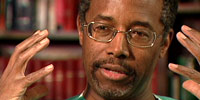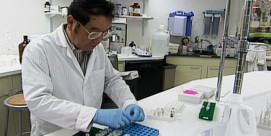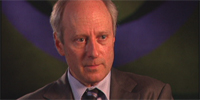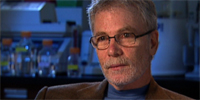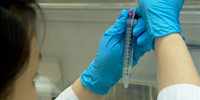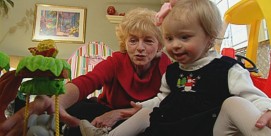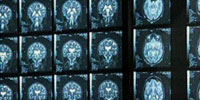Tag: Bioethics
The practice of “familial searching” is causing a conflict between solving crimes and protecting privacy. Police can now take DNA from a crime scene and compare it to millions of DNA samples in a government database. If there is even a partial match, that could lead to the criminal by way of his or her family members if their DNA is in the database. More
BOB ABERNETHY, anchor: We have a report today about one of the most prominent pediatric neurosurgeons in the world: Dr. Ben Carson. He’s probably best known for his surgeries to separate conjoined twins. Carson talks about his work and … More
Parents want to give their children every advantage in life and they also want do whatever possible to make their children healthy. But what about going beyond opportunities and health to genetic enhancement? Science is opening that door in a big way, and many ethicists debate where the line between health and enhancement should be. More
Read R & E producer Susan Grandis Goldstein’s June 5, 2007 interview with Michael Sandel in Washington, DC: Q: Why did you write THE CASE AGAINST PERFECTION? A: I initially became interested in the subject through my service on the … More
Read Kim Lawton’s interview with Gregory Stock, CEO of Signum Biosciences and director of the Medicine, Technology, and Society Program at the UCLA School of Medicine: Q: What kind of research are you doing? A: Here at Signum we are … More
According to the fertility industry, 30,000 babies are born each year to women who have been provided with donor sperm. Most donors prefer to remain anonymous, but what happens when a child asks, “Who is my father?” More
A government advisory committee recommended that 11- and 12-year-old girls be routinely vaccinated against a sexually transmitted virus that causes cervical cancer. The vaccine is most effective when it’s administered to girls before they become sexually active. But with the potential for premarital sex involved, the recommendation has been caught between science, politics and religion. More
Expanding medical technologies continue to create a host of new ethical dilemmas. Researchers can now detect early in a pregnancy if a fetus has Down Syndrome. The condition usually results in some degree of physical and mental disability, and armed with that information, some expectant parents face the wrenching decision of whether to terminate the pregnancy. More
Terminally ill patients exercise their “right to die” when they want their suffering to end, but what about those who want to live? A British court ruled that a doctor can decide when to terminate a patient’s life. Leslie Burke suffers from cerebral ataxia and will eventually lose his ability to speak and swallow, yet he is concerned that doctors will choose to end his life against his wishes. More
Drug makers and neuroscientists are enhancing what human brains can do, but what are the implications of these developments? For instance, what if brain researchers someday learn to find out what a patient is thinking? Or to predict a disabling disease? Or, right now, what about so-called “smart pills” that improve a college student’s performance on an exam? More


